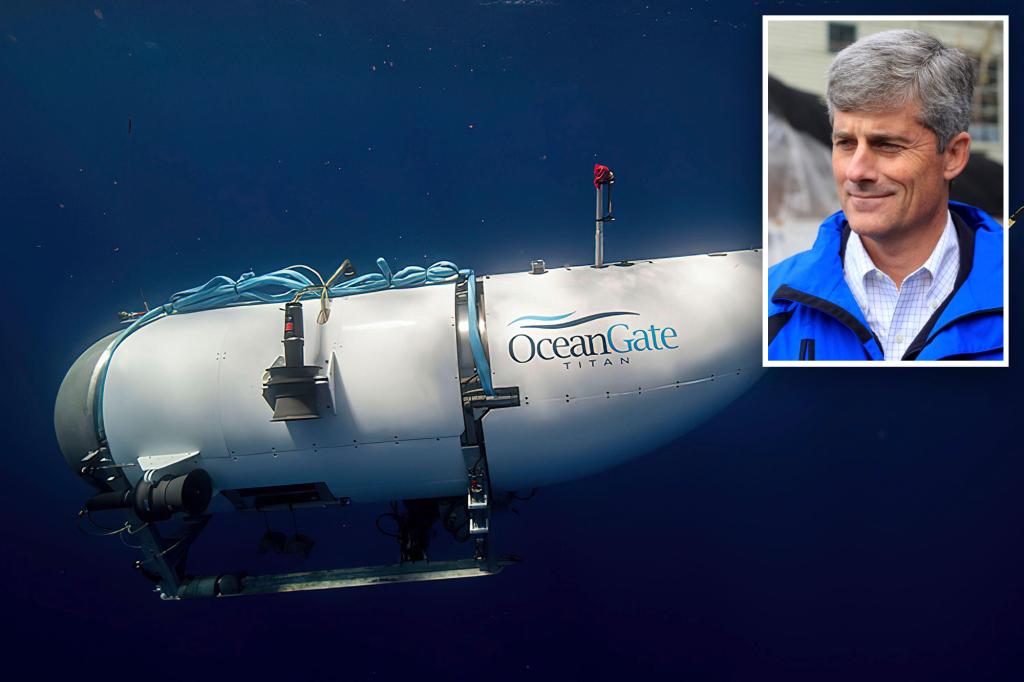
The captain of the ill-fated Titan submersible, Stockton Rush, was a “maverick in the worst kind of way,” according to one of his peers.
Undersea exploration expert Rob McCallum said the implosion of the craft and loss of five lives while visiting the famed 1912 wreck, 10,000 feet below the surface of the Atlantic, was entirely avoidable — if not for the captain’s ego and recklessness.
He charged that Rush, who had also developed the craft with his company OceanGate, had been cavalier and hasty in designing his sub and getting it underwater and dismissed the idea of getting it certified by outside parties to vouch for its safety.
“Stockton will be remembered as a Cavalier, maverick in the worst kind of way,” McCallum told The Post.
“Stockton believed in his own ability and was not prepared for a third party view.”
He added: “Most submersibles are held to a rigorous standard to which the Titan was not. The fact that it was not held to the standard is what made deep sea diving risky.”
On June 18th, 2023, the Titan set out with five passengers aboard: Rush, 61, French Titanic expert Paul-Henri Nargeolet, 77, and tourists Hamish Harding, 58, businessman Shahzada Dawood, 48, and his son, Sulaiman Dawood, 19.
The passengers had paid up to $250,000 each to be on board the craft, which lost communication with its surface ship around 1 hour and 45 minutes into the journey, shortly before it reached the wreck.
Believing the passengers could still alive, a monumental international effort to locate them was mounted over the next harrowing few days.
It was only once an unmanned rescue vessel found debris from the wreck that it was confirmed all aboard were lost.
The deep sea exploration community had a “profound sadness and frustration” in reaction to the deaths of the passengers, according to McCallum.
One of the main flaws in the Titan’s design was how the hull of the submersible, where the passengers sat, was made largely of carbon fiber, whereas every other deep sea vessel is made from titanium or reinforced steel to cope with the enormous pressures of the deep ocean.
McCallum said he had previously consulted for Rush and had tried to warn him of the risks he was taking, but he was ignored and even threatened with legal action.
He also believes Rush failed to properly inform his passengers about the risk associated with their expedition.
“The passengers were influenced by marketing and their enthusiasm. No one worried about the engineering details; they were blindsided by their excitement to see the Titanic,” McCallum said.
He also believed that this situation will be used as a case study in engineering classes for years to come. Various investigations into the Titan wreckage by the US Coast Guard and Canadian Safety Board, among others, are still underway.
McCallum made an argument that since Stockton Rush was a United States citizen, the United States Coast Guard should have played a bigger role in making sure his vessel was certified before it started carrying passengers.
However, he gave his blessing to a new journey planned to the wreck, helmed by billionaire Larry Connor and Triton submarines boss Patrick Lahey, to prove deep sea dives are still safe — as they are using a professionally classed and certified $20m vessel.

